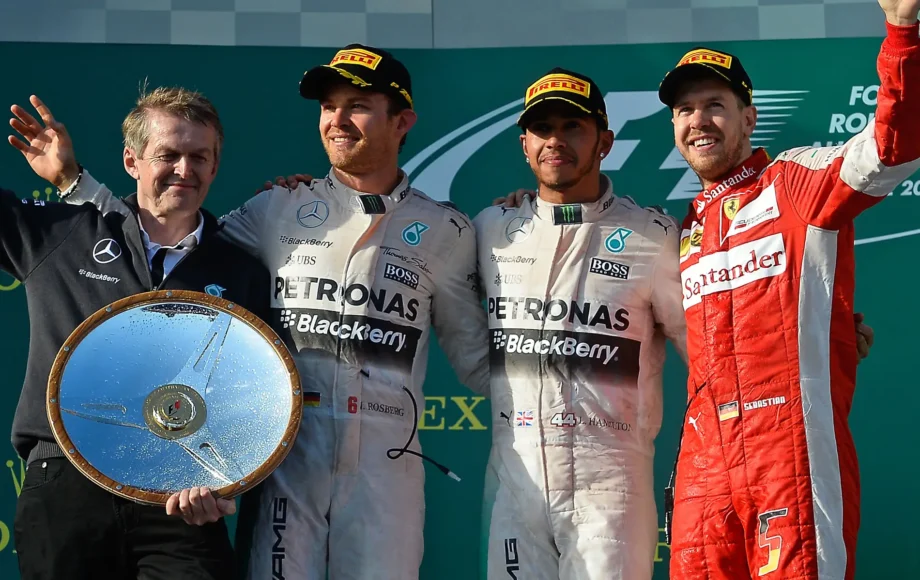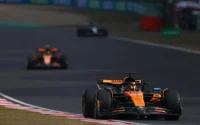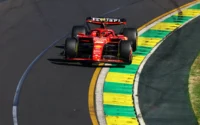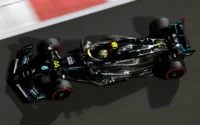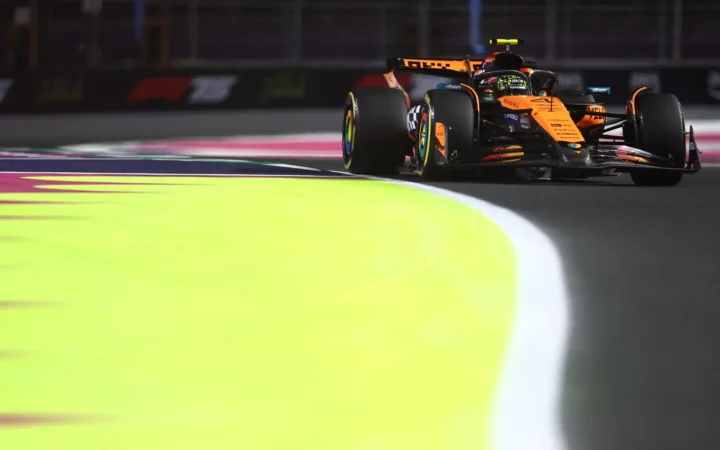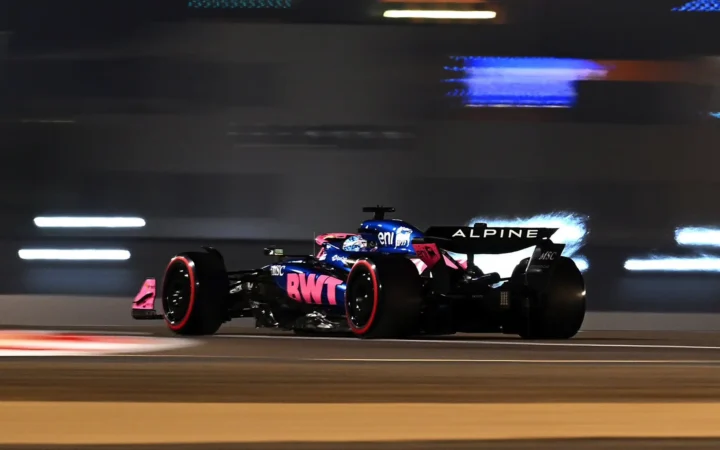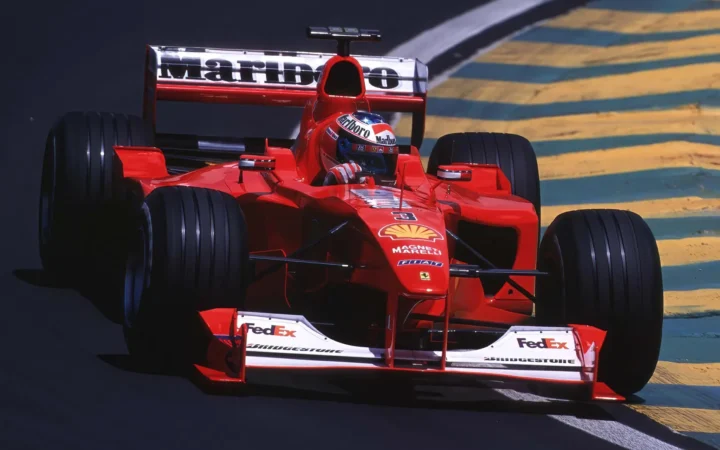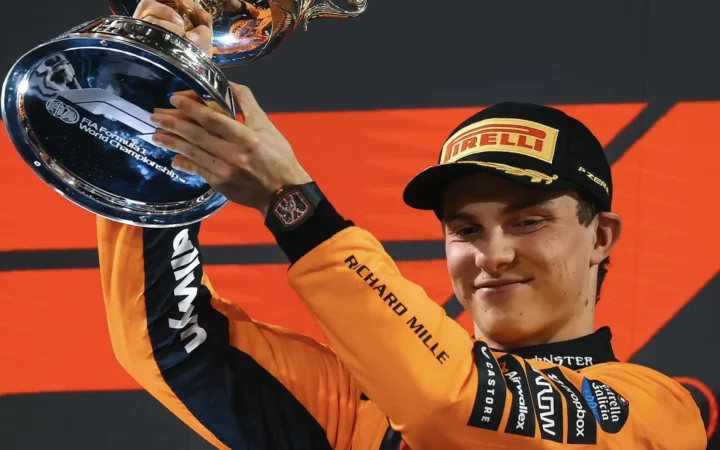In recent years, since the ruleset changed in 2022, Formula 1 has been the playground of Red Bull Racing, with Max Verstappen leading the charge in record-breaking fashion. After dominating the 2022 and 2023 seasons and continuing their stronghold in 2024, Red Bull has racked up a staggering list of achievements — from most wins in a season to the longest winning streak and the highest points tally in a campaign. But while Red Bull’s supremacy feels unmatched at times, with a weaker second driver, they often faltered at securing a haul of 1-2 finishes during their dominance. Highlighting just how hard it is to take the top two steps of a podium.
What To Know?
- Ferrari holds the all-time record with 85 1-2 finishes, across decades of competition since 1950, including dominant runs in the 1950s and early 2000s — though recent 1-2s have been rarer.
- Mercedes exploded back into F1 dominance from 2014 to 2020 with 53 1-2s in the turbo-hybrid era, though they’ve only added one more since — in Brazil 2022.
- McLaren, after years in the wilderness, returned to form by winning the 2024 Constructors’ title and reaching 50 all-time 1-2s at the 2025 Chinese GP.
- Red Bull rose to prominence in the 2010s and continues its modern-day dominance, with Max Verstappen leading the charge. With a strong start to 2024, the team quickly added to its 1-2 tally.
- Williams was a dominant force in the 1980s and 1990s, collecting 33 1-2 finishes, but hasn’t had one since 2003. Under James Vowles and with Carlos Sainz joining in 2025, a resurgence may be on the horizon.
Dynasties mark the history of Formula 1. Mercedes famously secured eight consecutive constructors’ titles between 2014 and 2021, Ferrari ruled the early 2000s with six straight championships, and in earlier decades, McLaren and Williams were the benchmarks of dominance. These eras didn’t just bring silverware — they brought a flood of 1-2 finishes, where both drivers from the same team crossed the line first and second. Occasionally, though, the script flipped: shock results like Jordan’s unforgettable 1-2 in the chaotic 1998 Belgian Grand Prix proved that underdogs could still write history.
Fast-forward to 2025, and McLaren has just celebrated a major milestone—their 50th 1-2 finish at the 2025 Chinese Grand Prix. It’s a reminder that while modern F1 may have revolved around Verstappen and Red Bull, the legacy of team dominance stretches across decades.
Full Race Weekend Report
So, which teams have topped the all-time list for 1-2 finishes? Let’s dive into the five most successful constructors when locking out the podium’s top steps.
F1 teams with the most 1-2s in history
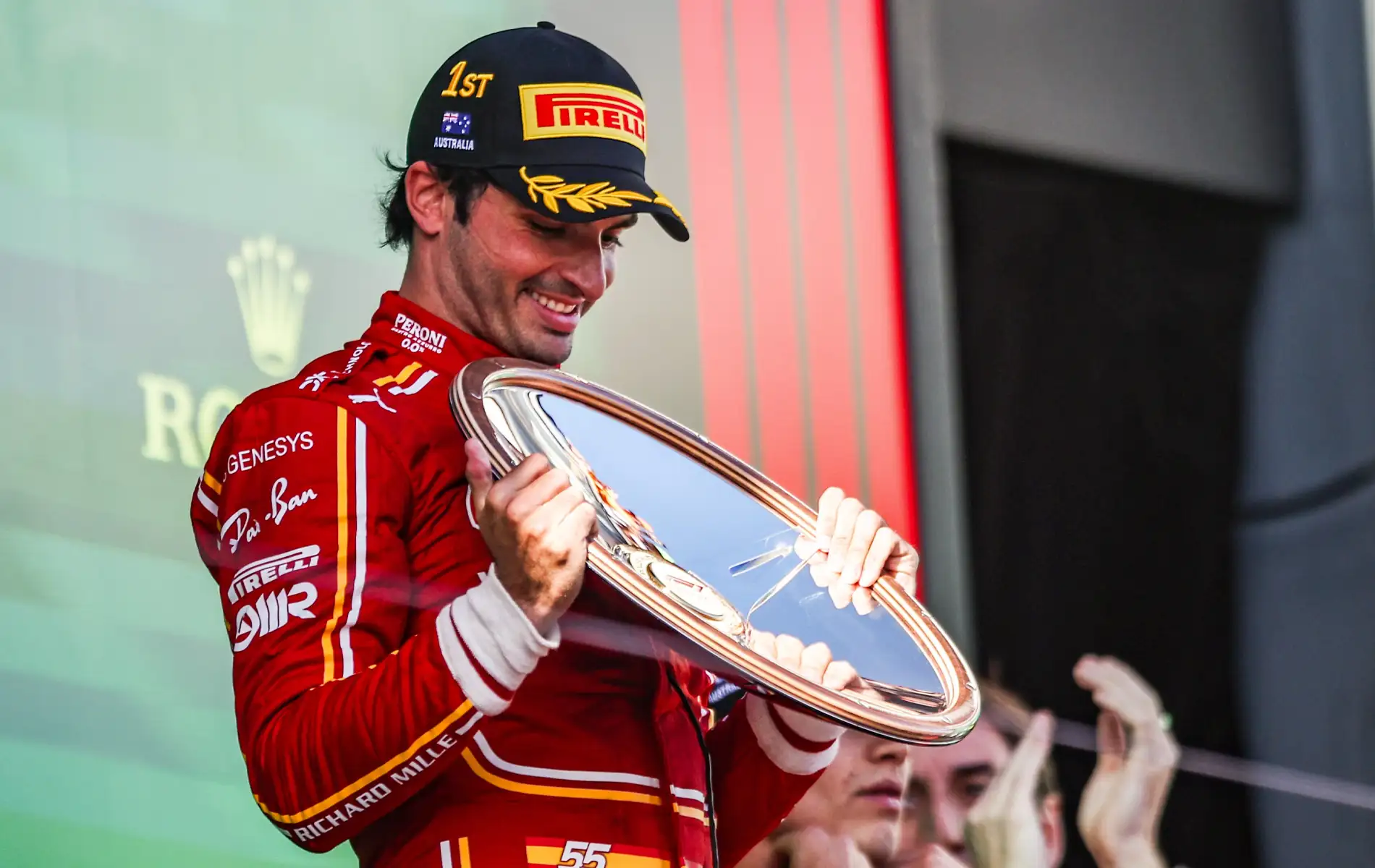
Ferrari: 85 1-2 Finishes
No team in Formula 1 history has claimed more 1-2 finishes than Ferrari — and frankly, that’s no shock. As the sport’s oldest and most storied constructor, Ferrari has competed in every F1 season since the championship began in 1950. Over that iconic run, the Scuderia has racked up 85 1-2 finishes, more than any other team on the grid. Their first came at their home race in Monza at the 1951 Italian Grand Prix, where Alberto Ascari led Jose Froilan Gonzalez to a dominant victory, lapping the entire field. It was a sign of things to come.
| F1 team debut | 1950 Monaco Grand Prix |
| Driver with the most victories at Ferrari | Michael Schumacher (72) |
| Partnership with the most 1-2s at Ferrari | Michael Schumacher and Rubens Barrichello (24) |
| Ferrari’s first F1 1-2 | 1951 Italian Grand Prix |
| Ferrari’s most recent F1 1-2 | 2024 Australian Grand Prix |
Ferrari’s golden run began in earnest in the early 1950s, with Ascari leading the team to five 1-2 finishes during his 1952 title-winning campaign. By the end of the 1950s, Ferrari had secured 17 1-2 results — a record of early dominance. However, the following decades brought mixed fortunes. The 1960s saw just five more 1-2s despite two championships, while the 1970s delivered more success, only to be followed by a dry spell in the 1980s. It wasn’t until the turn of the millennium, after a 16-year title drought, that Ferrari’s most dominant era arrived.
Between 1999 and 2004, Ferrari reasserted itself with a vengeance, delivering 26 1-2 finishes during Michael Schumacher’s reign, with Rubens Barrichello often locking down second. But since then, the results have been harder to come by. The 2010s brought just five 1-2s, and while hopes were high after Ferrari kicked off the 2022 season with a 1-2 in Bahrain, Red Bull quickly took control. As of the 2025 season, Ferrari’s only other recent 1-2 came in a chaotic 2024 Australian Grand Prix — a rare opportunity seized when Max Verstappen retired and Sergio Perez struggled for pace. Even more remarkable was that Carlos Sainz delivered the win while recovering from an appendectomy, ahead of teammate Charles Leclerc.
Formula One History Recommends
For the Tifosi, the wait for a return to consistent dominance continues. Will Lewis Hamilton’s move to Ferrari bring future glory?
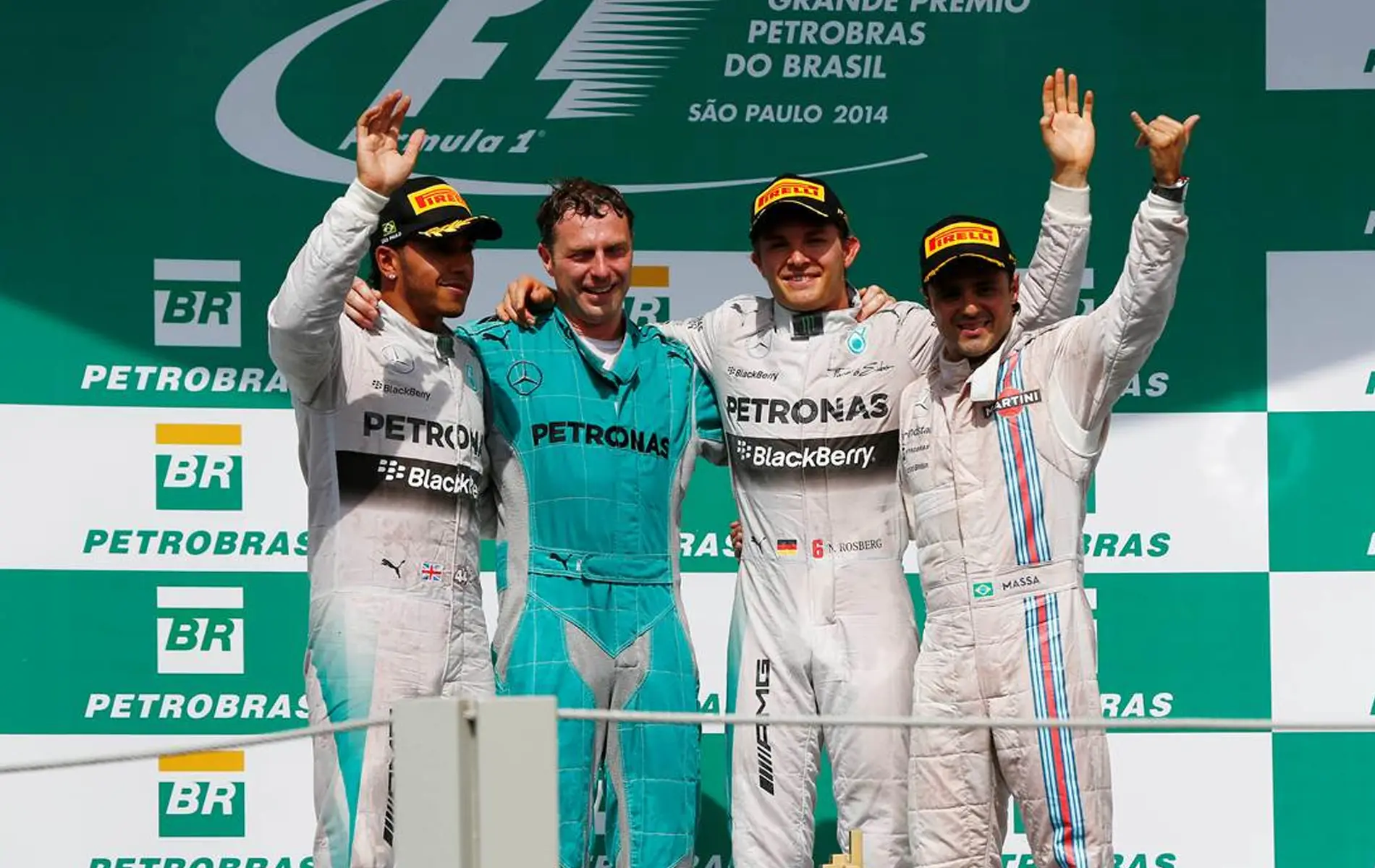
Mercedes: 59 1-2 Finishes
Mercedes’ Formula 1 legacy began with a bang in 1954. Making its debut midway through the season, the team arrived with the revolutionary W196, powered by a straight-eight engine that immediately left rivals in the dust. In its very first race — the 1954 French Grand Prix — Juan Manuel Fangio led a 1-2 finish for the Silver Arrows after jumping ship from Maserati. Mercedes went on to dominate, taking the 1954 title and delivering four more 1-2 finishes the following year. But just as quickly as it rose, the team exited the sport. The tragic 1955 Le Mans disaster, which claimed 84 lives, led Mercedes to withdraw from motorsport entirely.
| F1 team debut | 1954 French Grand Prix |
| Driver with the most victories at Mercedes | Lewis Hamilton (82) |
| Partnership with the most 1-2s at Mercedes | Lewis Hamilton and Nico Rosberg (31) |
| Mercedes’ first F1 1-2 | 1954 French Grand Prix |
| Mercedes’ most recent F1 1-2 | 2022 Brazilian Grand Prix |
It wasn’t until 2010 that Mercedes officially returned to the grid, taking over the reigning championship team Brawn GP. After a few seasons finding their feet, the team exploded into a new era of dominance with the advent of turbo-hybrid engines in 2014. Led by Lewis Hamilton and Nico Rosberg, Mercedes racked up 11 1-2 finishes that season — a record at the time — and then beat it with 12 more in 2015. From 2014 to 2016, the team was untouchable, even matching Ferrari’s long-standing record of five consecutive 1-2s in a season — not once, but twice. This stretch laid the foundation for their unprecedented run of eight straight constructors’ titles.
While Mercedes’ dominance faded after 2020, the numbers remain staggering. Between 2014 and 2020, the Silver Arrows recorded 53 1-2 finishes — the most by any team in such a short span. But as the Verstappen-Red Bull era took hold, Mercedes struggled to keep pace. Their only 1-2 since came at the 2022 Brazilian Grand Prix, where contact and a penalty cost Verstappen dearly, opening the door for a George Russell-led victory ahead of Hamilton. As of 2025, that remains their most recent 1-2 — a stark contrast to their not-so-distant heyday.
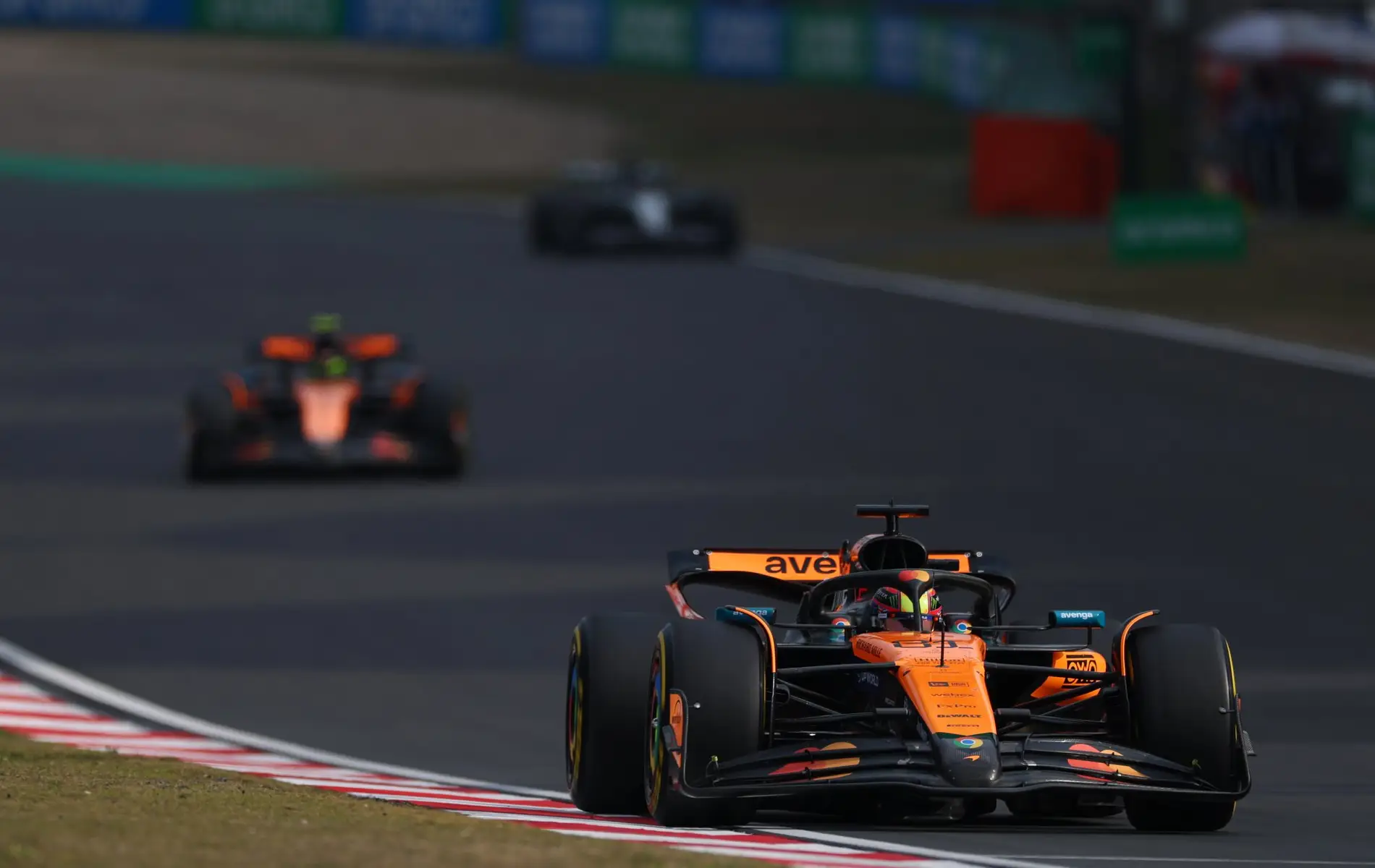
McLaren: 50 1-2 Finishes
McLaren may have endured a long championship drought — with just one title in the first two decades of the 21st century — but those difficult years, since the end of the 2024 F1 World Championship, now feel firmly in the rearview mirror. Just two years after debuting in 1966, the team claimed its first 1-2 finish at the 1968 Canadian Grand Prix, with Denny Hulme leading founder Bruce McLaren across the line. However, it would take another 15 years to repeat the feat. That came at the 1983 United States Grand Prix West, marking a turning point under Ron Dennis, who had taken over the team in 1981 and laid the foundations for a dominant era.
| F1 team debut | 1966 Monaco Grand Prix |
| Driver with the most victories at McLaren | Ayrton Senna (35) |
| Partnership with the most 1-2s at McLaren | Ayrton Senna and Alain Prost (14) |
| McLaren’s first F1 1-2 | 1968 Canadian Grand Prix |
| McLaren’s most recent F1 1-2 | 2025 Chinese Grand Prix |
McLaren soared through the 1980s, delivering 22 1-2 finishes across the decade and setting a single-season record in 1988 with 10 — courtesy of the legendary Ayrton Senna and Alain Prost partnership. That momentum continued into the 1990s with Mika Häkkinen leading the charge, while the 2000s brought more success, including nine 1-2s. Yet during Lewis Hamilton’s title-winning 2008 season, McLaren failed to land a single 1-2, highlighting a growing imbalance in the team. After 2010, the drought deepened further as the team was hit hard by the turbo-hybrid era, bottoming out in 2015 with a near-last finish in the standings.
But the turnaround has been remarkable. McLaren began climbing back with a podium in Brazil in 2019 and ended a nine-year winless streak with a surprise 1-2 at Monza in 2021. From there, the progress snowballed. In 2024, McLaren returned to the very top by clinching the 2024 Constructors’ Championship — their first since 1998 — and delivered a 1-2 at the Hungarian Grand Prix, with Oscar Piastri taking his maiden win. They followed that up in 2025 with a dominant 1-2 in China, marking their 50th in Formula 1 history. After years in the wilderness, McLaren is not just back — they’re winning again, and doing it in style.
Formula One History Recommends
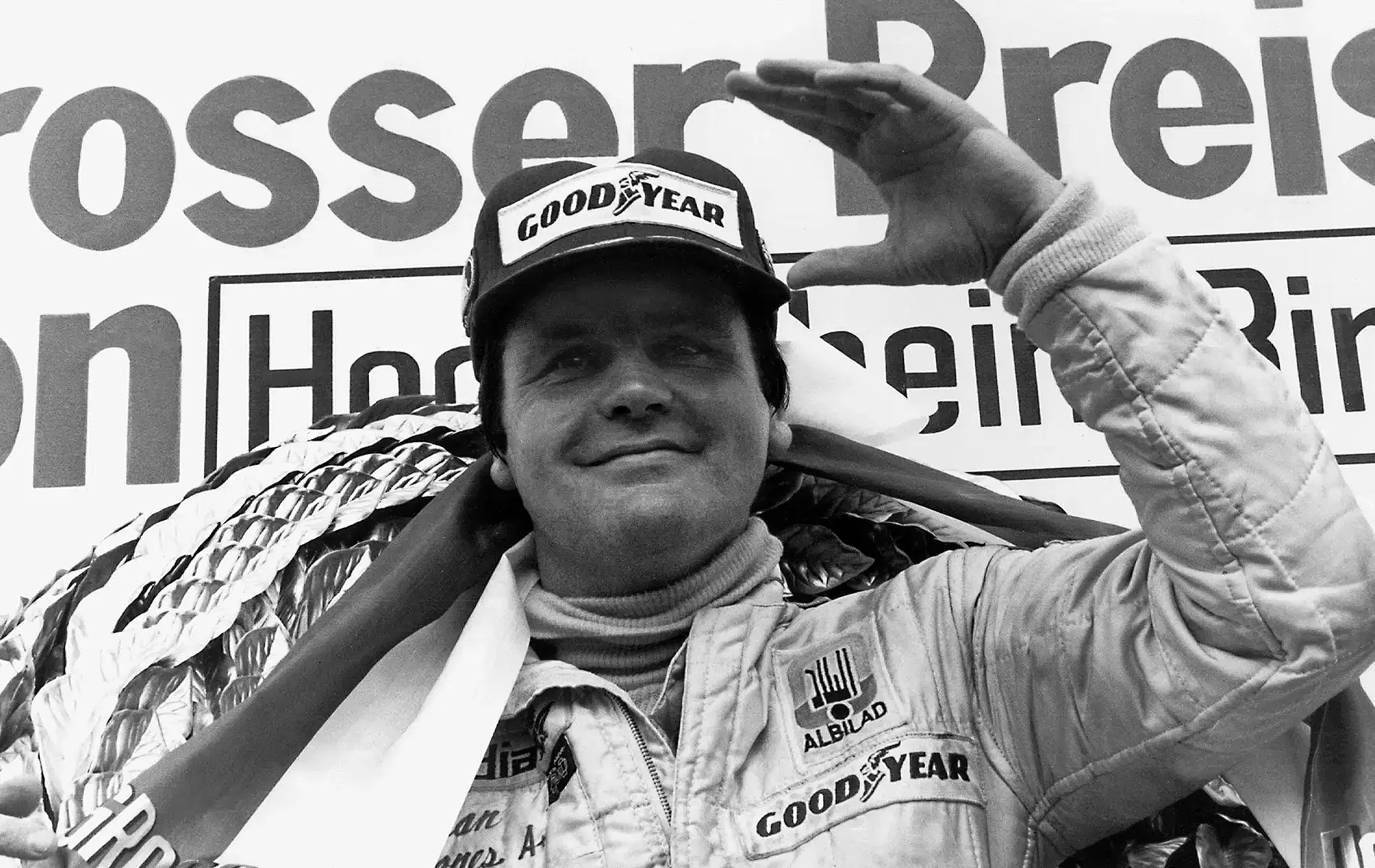
Williams: 33 1-2 Finishes
Williams is a name etched deeply into Formula 1 history, though its recent years have been defined more by struggle than silverware. Once a dominant force, the team claimed its first 1-2 finish in just its third season at the 1979 German Grand Prix, where Alan Jones led Clay Regazzoni home. Jones would go on to win the team’s maiden drivers’ title the following year, kickstarting a golden era. The 1980s saw Williams claim four constructors’ championships and 12 1-2 finishes, highlighted by the powerful partnership of Nigel Mansell and Nelson Piquet, who delivered six 1-2s in just two seasons — with Piquet taking the 1987 crown.
| F1 team debut | 1977 Spanish Grand Prix |
| Driver with the most victories at Williams | Nigel Mansell (28) |
| Partnership with the most 1-2s at Williams | Nigel Mansell and Riccardo Patrese (8) |
| Williams’ first F1 1-2 | 1979 German Grand Prix |
| Williams’ most recent F1 1-2 | 2003 French Grand Prix |
The 1990s, however, were Williams’ true peak. With Adrian Newey joining in 1991, the team produced some of the most advanced cars of the era — most notably the FW14B and FW18. Mansell dominated in 1992 with six 1-2 finishes that season alone, while Damon Hill repeated the feat in 1996 en route to his championship win. Across the decade, Williams secured 17 1-2 results and five constructors’ titles. But success began to fade as Newey left and Renault pulled out. The team managed a brief resurgence in the early 2000s, with Ralf Schumacher and Juan Pablo Montoya delivering a 1-2 in Malaysia in 2002 and repeating the feat twice more in 2003. Still, since then, Williams has claimed just two wins — in 2004 and 2012 — and hasn’t recorded a 1-2 in over two decades.
But change is in the air. Since James Vowles took over as Team Principal, Williams has shown signs of life again — with a clear vision, stronger leadership, and improved infrastructure. His bold move to sign Carlos Sainz for the 2025 season has sent a signal to the paddock that Williams is no longer content to sit at the back. While their last 1-2 was all the way back in 2003, the renewed energy around the team suggests a revival may not be far off. With Vowles at the helm and a proven race winner in Sainz joining the fold, the foundations are being laid for a modern Williams resurgence — one that might just bring 1-2 finishes back into the conversation.
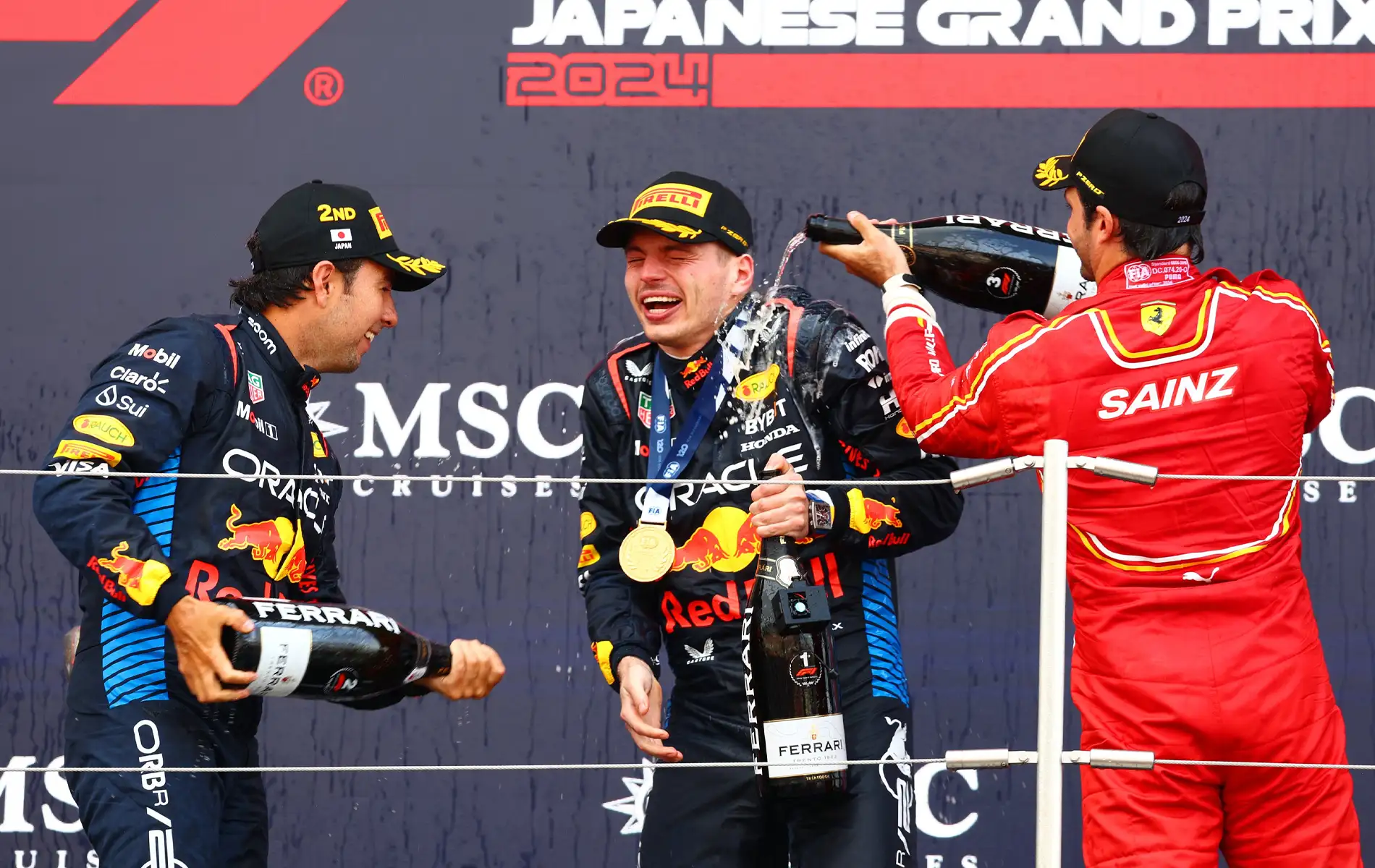
Red Bull Racing: 31 1-2 Finishes
Red Bull Racing is a modern F1 powerhouse — a sharp contrast to the legacy-built empires of McLaren and Williams. The team entered Formula 1 in 2005 after acquiring Jaguar, and while the early years were focused on building a solid foundation, it wasn’t long before Red Bull made a serious impact. Their breakthrough came at the 2009 Chinese Grand Prix, where Sebastian Vettel led Mark Webber to the team’s first-ever victory — which also happened to be a 1-2 finish. That momentum sparked four 1-2s that season and marked the beginning of Red Bull’s first dominant era.
| F1 team debut | 2005 Australian Grand Prix |
| Driver with the most victories at Red Bull | Max Verstappen (57) |
| Partnership with the most 1-2s at Red Bull | Sebastian Vettel and Mark Webber (16) |
| Red Bull’s first F1 1-2 | 2009 Chinese Grand Prix |
| Red Bull’s most recent F1 1-2 | 2024 Japanese Grand Prix |
Between 2010 and 2013, Red Bull secured four consecutive constructors’ and drivers’ championships, with Vettel at the helm. During that golden stretch, the team claimed 12 1-2s, with both 2010 and 2013 yielding four apiece. However, the introduction of new power unit regulations in 2014 saw Red Bull slip down the order, and 1-2 finishes became rare. Only one came during the rest of the decade — at the 2016 Malaysian Grand Prix — when Daniel Ricciardo led home a young Max Verstappen. But a new era was just around the corner. By the 2022 Emilia Romagna Grand Prix, Red Bull had rediscovered its rhythm, scoring its 18th 1-2 as Verstappen and Sergio Perez secured a dominant win that shifted the season’s momentum away from Ferrari.
That was just the beginning. Red Bull went on to win five more races in a row, including two more 1-2s, and added a few more by the end of the 2022 season. In 2023, the team achieved near-total domination, winning 21 of 22 Grands Prix — yet curiously only six of those were 1-2 finishes. The limiting factor was Perez, who struggled for consistency and managed just nine podiums all year. But in early 2024, Red Bull came out swinging. Perez looked more comfortable, and in the opening four races, the team delivered three emphatic 1-2s — all won by Verstappen.
Formula One History Recommends
As the 2025 season gets underway, Red Bull has serious issues with its second driver. Liam Lawson, who was drafted in to replace Sergio Perez from the sister Racing Bulls team, was demoted back after just two races, and Yuki Tsunoda was promoted. This highlights the difficulties of the Red Bull car and the seat alongside one of F1’s most talented drivers of all time, Max Verstappen. Future 1-2’s seem far off.
Which Other F1 Teams Have Scored a 1-2 Finish?
While modern F1 dominance is often associated with giants like Ferrari, Mercedes, and Red Bull, several other teams throughout F1 history have also achieved the elusive 1-2 finish — where both drivers from the same team take the top two steps on the podium. Brabham leads this group with 8 total 1-2 results, reflecting its strength during the 1960s and 1980s under the leadership of legendary founder Jack Brabham and, later, the godfather of F1, Bernie Eccelstone. Close behind are Tyrrell and Lotus, both with 7, iconic names from F1’s golden era that played significant roles in shaping the sport’s technical evolution. BRM, a British manufacturer and constructor champion in 1962, managed 5, while Alfa Romeo — a dominant force in the early days of F1 — scored 4.
A few teams achieved fewer but no less impressive 1-2 finishes during brief flashes of brilliance. Brawn GP, for example, secured 3 during its fairy-tale 2009 championship season. American constructors like Kurtis Kraft and Epperly also make the list, showcasing the sport’s early international variety. Cooper, Renault, Benetton, and even Maserati each recorded 1-2. While some of these names, like Ligier, Jordan, and BMW-Sauber, surprised the paddock with one-off moments of excellence. Consistent dominance is rare, but many teams have tasted the sweet success of a 1-2 — even if only once.
| Team | Total |
|---|---|
| Brabham | 8 |
| Tyrrell | |
| Lotus | 7 |
| BRM | 5 |
| Alfa Romeo | 4 |
| Brawn | |
| Kurtis Kraft | 3 |
| Cooper | 2 |
| Epperly | |
| Watson | |
| Matra International | |
| Renault | |
| Benetton | |
| Maserati | 1 |
| Ligier | |
| Jordan | |
| BMW-Sauber |

